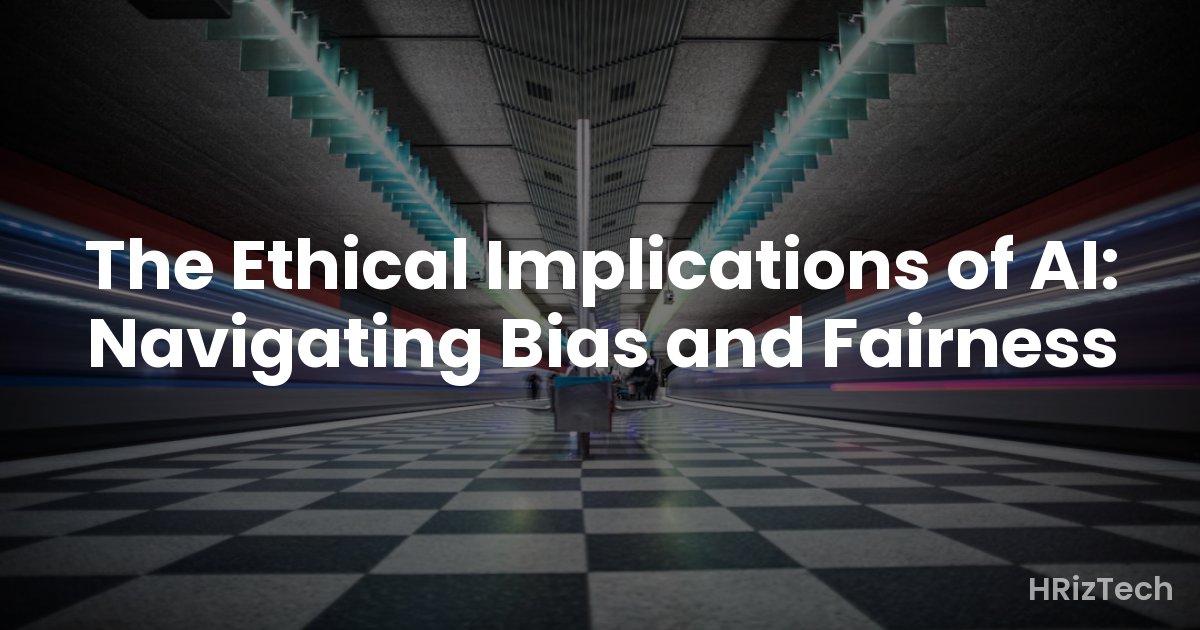The Ethical Implications of AI: Navigating Bias and Fairness

The Ethical Implications of AI: Navigating Bias and Fairness
- AI systems reflect the biases present in their training data.
- Fairness in AI requires careful consideration of diverse perspectives.
- Mitigating bias necessitates ongoing monitoring and adjustment.
- Transparency and explainability are crucial for ethical AI development.
- Collaboration between technologists, ethicists, and policymakers is essential.
Artificial intelligence (AI) is rapidly transforming our world, impacting everything from healthcare and finance to criminal justice and employment. While AI offers immense potential for good, its increasing prevalence also raises significant ethical concerns, particularly regarding bias and fairness. This isn't just a theoretical debate; biased AI systems can perpetuate and amplify existing societal inequalities, leading to unfair and discriminatory outcomes.
The Roots of Bias in AI
The core problem lies in the data. AI algorithms learn from vast datasets, and if these datasets reflect societal biases – be it gender, race, socioeconomic status, or other factors – the resulting AI system will inevitably inherit and even exacerbate those biases. For example, an AI system trained on facial recognition data predominantly featuring white faces might perform poorly when identifying individuals with darker skin tones. Similarly, an AI used in loan applications trained on historical data reflecting discriminatory lending practices might unfairly deny loans to certain demographics.
Data Collection and Representation
The process of data collection is crucial. If the data isn't representative of the diverse population it's intended to serve, the AI system will be inherently biased. This requires careful consideration of sampling methods, ensuring diverse and inclusive representation within the dataset. Simply relying on readily available data can inadvertently perpetuate existing inequalities.
Algorithmic Design and Implementation
Even with a well-represented dataset, the design and implementation of the algorithm itself can introduce bias. Certain algorithms might be more susceptible to amplifying existing biases than others. Furthermore, the choices made during the development process, such as the selection of features or the definition of success metrics, can also significantly impact fairness.
Mitigating Bias and Promoting Fairness
Addressing the ethical implications of AI requires a multifaceted approach. It's not enough to simply build AI systems; we must actively work to ensure they are fair, transparent, and accountable. This involves a combination of technical, social, and policy interventions.
Data Preprocessing and Augmentation
Before training an AI system, careful preprocessing of the data is essential. This might involve techniques like re-weighting samples to address imbalances, or synthetic data generation to improve representation of underrepresented groups. Careful data cleaning is also crucial to remove any overtly biased or discriminatory information.
Algorithmic Fairness Techniques
Researchers are developing various algorithmic techniques designed to mitigate bias. These include fairness-aware machine learning algorithms that explicitly incorporate fairness constraints during training. However, it's crucial to remember that there's no single definition of fairness, and different techniques may prioritize different aspects of fairness.
Transparency and Explainability
Transparency is paramount. Understanding how an AI system arrives at its decisions is crucial for identifying and addressing potential biases. Explainable AI (XAI) techniques are being developed to provide insights into the decision-making process, making it easier to detect and rectify unfair outcomes.
Human Oversight and Accountability
While algorithms can help mitigate bias, human oversight remains essential. Regular audits and monitoring of AI systems are necessary to identify and address potential issues. Establishing clear lines of accountability for the development and deployment of AI systems is crucial to ensure responsible innovation.
The Role of Collaboration
Addressing the ethical implications of AI is not the sole responsibility of technologists. It requires a collaborative effort between technologists, ethicists, policymakers, and the wider community. Ethically-minded AI development requires open dialogue and a commitment to addressing the societal implications of this powerful technology.
Policy and Regulation
Governments and regulatory bodies play a vital role in establishing ethical guidelines and regulations for the development and deployment of AI. These regulations should address issues such as data privacy, algorithmic transparency, and accountability for AI-driven decisions.
Education and Awareness
Raising public awareness about the ethical implications of AI is crucial. Educating individuals about the potential for bias and the importance of responsible AI development can empower them to demand greater fairness and accountability from AI systems.
Key Takeaways
The ethical implications of AI are far-reaching and demand careful consideration. Building fair and unbiased AI systems requires a multifaceted approach involving data preprocessing, algorithmic fairness techniques, transparency, human oversight, and collaborative efforts across disciplines and sectors. The future of AI depends on our collective commitment to responsible innovation.
What are your thoughts on the most effective strategies for ensuring fairness in AI development and deployment? Share your insights in the comments below!
Comments
No comments yet. Be the first to comment!